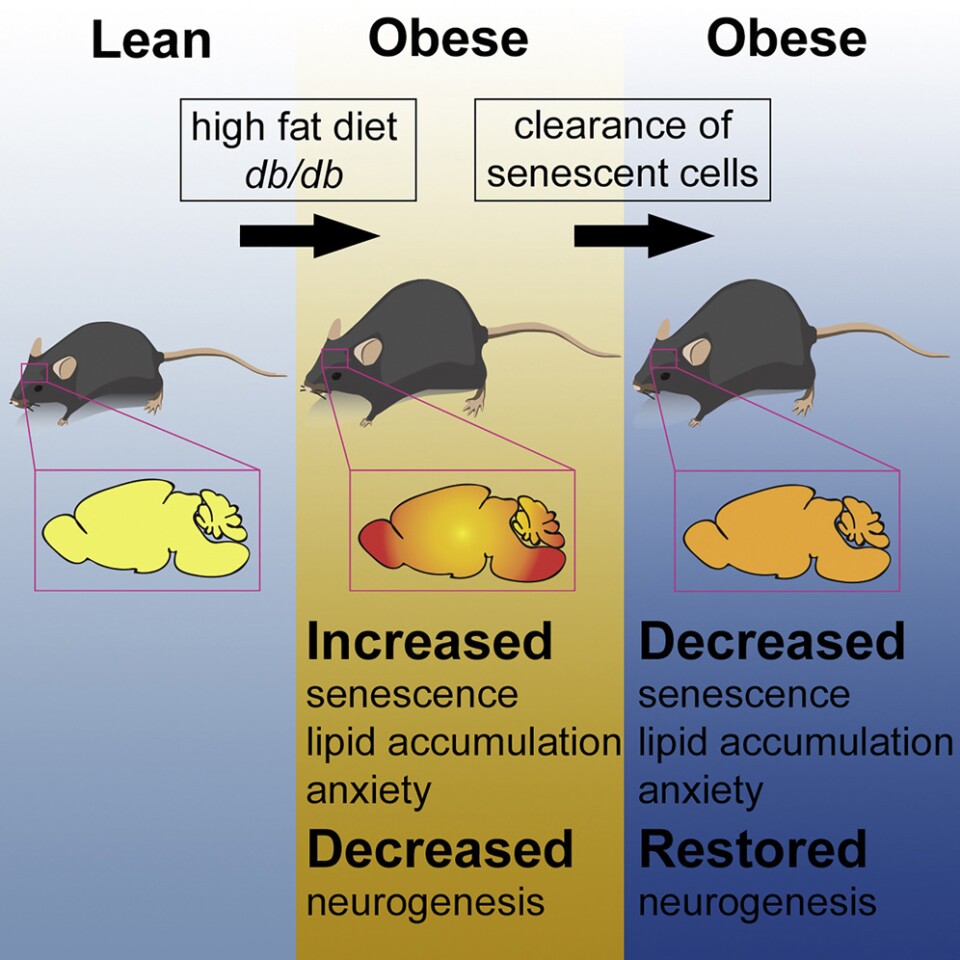A compelling new study from an international team of researchers has revealed a fascinating connection between obesity, anxiety, and the accumulation of "zombie," or senescent, cells in the brain. The research in mice revealed that obesity increases the volume of these cells in the brain, which subsequently increases anxiety-like behavior in the animals.
Senescent cells are are cells that have stopped dividing but don't die, and they tend to accumulate with age. Many scientists have been examining how the accumulation of these stagnant cells can be a fundamental trait of many age-related diseases. Senescent cells have also been recently implicated in the progression of neurodegenerative diseases, with some researchers suggesting they may be a good target in the battle against dementia and age-related cognitive decline.
This new study, including scientists from the University of Newcastle and the Mayo Clinic, set out to try to draw together several seemingly disparate bits of research. Depression and anxiety have long been associated with obesity, and obesity has also been found to increase the accumulation of senescent cells. So, it's a reasonable hypothesis to suggest this obesity-related accumulation of senescent cells may be triggering obesity-related anxiety-like behavior.
The first stage in the research was to verify the behavioral and biological changes associated with obesity. A mouse model fed a high fat diet was found to rapidly accumulate both fat cells and senescent cells in certain areas of the brain. Alongside this, the obese mice displayed increases in anxiety-like behaviors according to several scientifically validated behavioral metrics.
The next step was to administer the obese animals senolytic drugs designed to clear these senescent cells from the brain. The results were fascinating, with the animals displaying significant behavioral improvements, suggesting the obesity-related accumulation of these senescent cells was potentially resulting in the anxiety-like behavior.

"Our data demonstrating a link between obesity, senescence, and anxiety-like behavior provide critical support for the potential feasibility of administering senolytics to treat obesity-associated anxiety-like behavior, provided that clinical trials validate this approach," conclude the researchers in the published study.
However, the conclusion reached by this research is still resolutely hypothetical with a huge amount of work still to be done to better affirm a causal relationship between obesity-related senescent cells and anxiety-like behavior. The researchers suggest the next steps for the work will be to more specifically understand what type of senescent cells may be responsible for the behavioral changes, and clarify the mechanism of action that could be occurring.
But the implications of the study are fascinating. This is the first study to investigate an association between senescent cells and neuropsychiatric disorders, and it also suggests a potential biological explanation underpinning mood and behavior commonly associated with obesity.
The new research was published in the journal Cell Metabolism.
Source: Mayo Clinic





